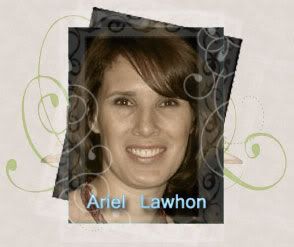
This has been a long year for me. And I find myself grappling with Story. I am a student, learning and listening. Over and over again I return to the parables. And I wonder what they mean to me as a writer.
Spend any time in Christian circles and you’ll eventually hear this: “Jesus knew how important stories are. That’s why he spoke in parables.” Those thirty short anecdotes sprinkled through the first four books of the New Testament are the subject of countless sermons. Yet I’ve never
seen them used to teach the craft of storytelling.
Several weeks ago this realization led me to a friend, a former NFL player and PHD in Biblical Studies. The book he handed me weighs more than my two-year-old.
“Do I need a doctorate to read this?”
He gave me a cheeky smile and a bone-rattling pat on the back. “If you want to understand the God of story, this is the book.”
Turns out, the Dictionary of Biblical Imagery is a fascinating read – if you have time to absorb all 1058 pages. Sorry to say I skimmed. My interest then, and now, lies in a mere two pages beneath the heading of “Parable,” a portion of which reads:
“The narrative qualities of the parables are a virtual case study in the “rules” of popular storytelling as we find them in folk narrative, including a reliance on archetypes…Only one of the characters (Lazarus) is named, yet as we encounter the characters of the parables we sense that we have known them already. They
are universal types, possessing the traits that we and our acquaintances possess. Never has such immortality been thrust upon anonymity. We do not need to know the name of the woman who first loses and then finds her lost coin: she is every person. The family dynamics of the parables of the prodigal son and the two brothers whose father asks them to work in the vineyards could be observed at any family’s breakfast table… We come to realize that it is in the everyday world of sowing and eating and dealing with family members that people make the great spiritual decisions and that God’s grace works.”
And that’s the power of story, isn’t it? To see ourselves in the narrative. To squirm and wrestle.
To celebrate. I find it interesting that overt religious references in the parables are rare. Jesus never inflects his images, never says, “Oh, by the way, that bit about the Prodigal Son is really about you and God. Wanted to make sure you caught that.” Instead, he lets me see my reflection in the story. He leaves me to wonder which part I play.
And I learn from this, tapping my thoughts onto a hard drive while my babies sleep. That’s what it means to show instead of tell. He doesn’t have to elaborate. I am shown the holy in the routine: planting and harvesting, a wedding invitation, baking bread, lighting a lamp, traveling to a distant town. The parables teach me to trust that readers understand the unspoken language of story.
“A final folktale feature of the simple stories Jesus told is their reliance on archetypes – master images that recur throughout literature and life. We think at once of such motifs as lost and found, robbed and rescued, sowing and reaping, sibling rivalry. Often these archetypes tap deep wellsprings of human psychology.”
Master images. Master storytelling. Simple and profound and, honestly, beyond the reach of my current abilities. I wish I could say that I fully understand how to apply the literary tools found in the parables to my own writing. But the truth is that I’ve only scratched the surface. Yet even as I struggle to learn this craft, he says, “Come, let me tell you a story.”













18 comments:
And His stories really are the richest, aren't they?
~ Wendy
so right on - I'm a preacher so you've given me some more sermon material, thanks! And that's the barrier we have to break, as writers (and so too for those of us who are clergy), to somehow lead the readers (and listeners) to that dreamspace so that they relate to the circumstances and put themselves in the story - the abstract is foreign to so many linear thinkers, but not for storytellers. Thanks Ariel. Great post.
Ariel, I have The Dictionary of Biblical Imagery. But I have to keep it on a high shelf or I pick it up and begin leafing through it and find an hour has gone by. It's addictive and insightful. Thanks for sharing with others how useful and refreshing it is!
Love this post, Ariel. And oh my- I've put that book on my wish list and added some change to the piggy bank.
Thanks, ladies. I am torn between amazement at how rich the scriptures are in narrative tools and humility for how few of them I understand.
But it's a journey, right? One day, one story at a time.
The parables unsettle me in the best of ways. I dig for meaning and find the images so evocative. Yep, I'm going to need that book too. Thanks for your thoughtful post, Ariel. And yes, we're all on the journey. Glad to be traveling with you.
What a fantastic and enlightening post, Ariel. You made me look at Christ's stories in a new way. Thanks for taking the time to share this! Have a great week! P.S> I'm looking forward to meeting your friend MaryAnn soon for Books Alive!
I love this post, Ariel. And like everyone else, I'm adding the book to my want list. Of all the books in my husband's theological library, that one isn't there. I too love that Jesus was a storyteller, and that he presented such deep spiritual truth with the simplest of stories. And yet, they're as important today as they were the day he told them. And as enigmatic. I can just see him smile, shake his head and say, "Do I have to explain this to you?"
Ariel, you did such a great job on this post. Made me proud (again) to be your She Reads partner!!
So true. Maybe that's why I love hearing them. I never thought of the parables in that way.
P.S. Correx to earlier comment: I am looking forward to meeting Marybeth and not MaryAnn, although I'm sure MaryAnn is nice, too! :)
Patti - I fear that I'm permanently unsettled by the parables. I see myself in every story.
Judy - thanks for your kind words. Marybeth is excited to meet you as well!
Sharon - I had to return the book I borrowed, so I'm buying my own copy (Amazon has it on sale right now). My guess is that it will become a favorite.
Nicole - Now that I think about it, Jesus was the first word-of-mouth success. I can imagine one of his contemporaries saying, "Hey you gotta come hear this guy. He tells the best stories."
Love this. And I love the simplicity and understatement of the parables - two things I struggle with. I tend to spell everything out. (What if they don't "get it"?) Jesus didn't seem too worried about that. Great reminder.
Love this!! Love your heart Ariel and how God is telling His story through yours!!!
Um... this isn't like me... Um... I'm speechless...
God is gripping me by the seat of my pants... shaking me around a bit... I can hear Him... "Kimberly... stop holding back... let's go. I need you in this season for a purpose." All I can come up with is, Yes, LORD. Use me.
Fantastic post!
I especially love this part of the excerpt you quoted:
"We do not need to know the name of the woman who first loses and then finds her lost coin: she is every person. The family dynamics of the parables of the prodigal son and the two brothers whose father asks them to work in the vineyards could be observed at any family’s breakfast table… We come to realize that it is in the everyday world of sowing and eating and dealing with family members that people make the great spiritual decisions and that God’s grace works."
What a great way to point out the power of the parables and of story.
I also love your lines here: "That’s what it means to show instead of tell. He doesn’t have to elaborate. I am shown the holy in the routine: planting and harvesting, a wedding invitation, baking bread, lighting a lamp, traveling to a distant town."
Just a beautifully written post here. Thank you so, so much for this.
Thanks for the recommendation...anything that encourages a deeper read of the scriptures is money/time well-spent. The Spirit of God illuminates the soul and helps one discover the pearls of truth in His Word...but as a writer and encourager, isn't it a privilege to help broadcast His Seed? ;)
I HAD to go to Amazon.com and buy this book. THIS IS WHAT I'VE NEEDED!!! I've known that there is so much that is lost to us because we are not familiar with the Jewish lifestyle that the patriarchs and of course, Jesus, my BFF lived. Now I can get the information I need to read it and understand what Jesus truly meant by the seemingly odd things he said (ie the eye of the needle, the cursing of the fig tree, etc). Thank you for recommending this book. And thank you so much for making the Eye of God available to us at no cost. You are a jewel in the Crown of our God. BLESSINGS!!!
Post a Comment